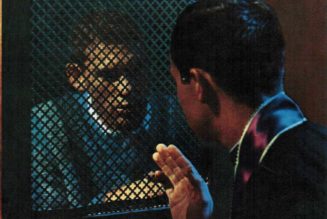“These people will also discover the seemingly insignificant conventions their predecessors have destroyed. Things like this: When it is proper for the young to be silent in front of their elders, when they should make way for them or stand up in their presence….”
Socrates, in Plato’s Republic
It is easy to deplore the state of manners today. It is difficult to discern how to address it. A first step is to remind ourselves of just how important manners are, and what we all miss when we lack them.
Manners makes life truly human in several ways. I will focus on one central way. They cultivate reverence for elders. What might seem just one moral disposition among many is in reality an irreplaceable cornerstone. Why?
At the center of our current moral, social, and cultural malaise is a rejection of what has been handed down to us, and a kind of idolatry of new and purportedly better and enlightened ways of living. This rejecting of tradition goes hand in hand with prioritizing one’s own feelings and desires. And it is literally embodied in our failure to honor age, to reverence our elders.
We have forgotten what any healthy society knows: truly human life demands real docility to those who have gone before us, both living and deceased.
Some of the most important forms of manners directly concern reverence for elders: forms of address or titles; how we speak with them; how we listen to them; how we greet them and act in their presence.
May I raise one uncomfortable but indicative example? Consider the young people around us—perhaps our own children or grandchildren. Do they reliably and habitually address adults as “Mr.” or “Mrs.” so and so? Do they greet them first (i.e., before being greeted), such as when seeing them at church or passing them on the street? In my experience even young people from good, intentional families tend to have very poor manners toward adults and the elderly.
I don’t want to belabor the point. But the wise have always seen that manners in such ‘little’ areas are in fact deeply expressive and formative of more fundamental moral dispositions.
The Law of Moses is quite explicit. “You shall rise up before the hoary head, and honor the face of an old man, and you shall fear your God: I am the Lord.” (Leviticus 19:32) The implied connection between one’s orientation toward elders and one’s orientation toward God is bracing. It also points to an exciting if challenging opportunity.
Manners that cultivate an appropriate reverence for elders likewise do something profoundly important in the soul. They prepare one to see and receive the gift of truly human life, and to relate well to all persons, including God.
Forming ourselves and our youth in such manners will not be easy. Manners by nature are social forms and thus do not lend themselves to solitary development or exercise. Nonetheless, even today certain basic forms still have meaning and can function with real purpose. One example I have already given is manners of address. Mr., or Mrs., or Miss (possibly with first name, especially in the South). This is simple but will require real effort. The fruits will be worth it.
Other examples: bodily posture in the presence of elders (possibly including standing-up at certain times); listening attentively; answering clearly, perhaps with a ‘yes please, Mrs. x’ or ‘no thank you, Mr. y.’
These begin in our homes, especially at our meals. Multiplying archaic forms will not be the answer. Savvy parents, grandparents, etc. will recognize what can reasonably be expected from our youth. They will also discern what external forms of respect toward themselves (as parents, grandparents, etc.) they will require. Here, one parent focusing on the respect due to the other parent is especially effective.
Omitting manners formation deprives and can even maim our children. In the end, we must have confidence that demanding certain external forms is a powerful gift, one that far from pinioning them actually forms and strengthens their wings, preparing them to soar at the altitude of a richly human life.
~ ~ ~
Our new short video on men cultivating manners at the dinner table. If you know someone who could benefit, please share!
Breathes there the man, with soul so dead, Who never to himself hath said, This is my own, my native land! Sir Walter Scott Damian P. Fedoryka, my wife’s father, passed from this life early in the morning July 26, 2022. His life, and his death, can teach me how to…
“But the category of friends, which is truly the most holy of desirable things—this is not assigned to Fortune’s list but to Virtue’s.” Boethius, Consolation of Philosophy One of our greatest fears is of bad things that happen to our friends and loved ones. In a great…
Husband, father, and professor of Philosophy. LifeCraft springs from one conviction: there is an ancient wisdom about how to live the good life in our homes, with our families; and it is worth our time to hearken to it. Let’s rediscover it together. Learn more.
Join Our Telegram Group : Salvation & Prosperity












